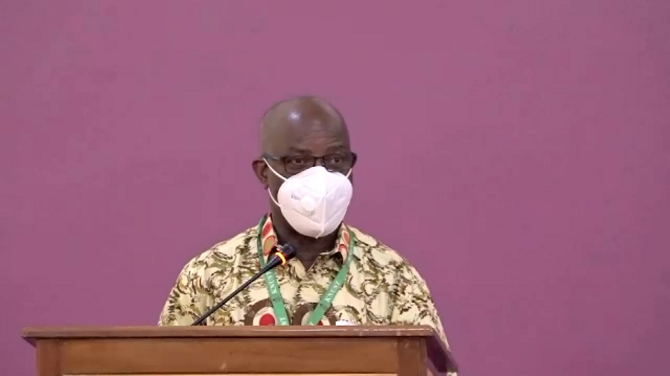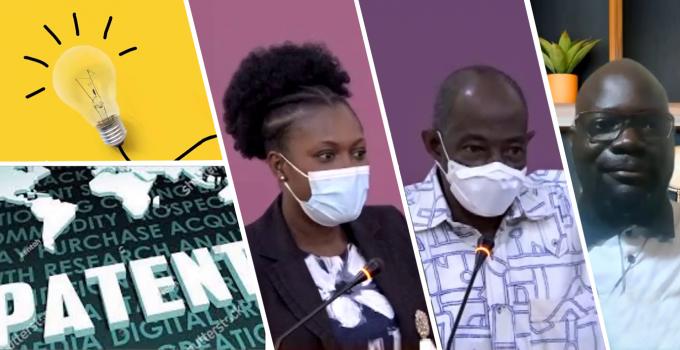The Intellectual Property Unit of KNUST's Office of Grants and Research organised a workshop on the Role and Benefit of Intellectual Property Rights in Academic Research. The workshop was sponsored by the Building Stronger Universities phase three (BSU III) project. The objective of the workshop was to give participants an understanding of the various IP tools as well as the skills needed to access and use patent information for research purposes. The Hybrid event which brought together about seventy (70) participants made up of researchers and postgraduate students was held both at the Amonoo Neizer Conference Center, KNUST and via Zoom.
The facilitators for the workshop included Mrs. Eunice Adu Boahen, the IP Administrator for KNUST, Mr. Samuel Annum, the Local Project Coordinator for the Swiss Ghana Intellectual Property Project under the auspices of the Ministry of Trade and Attorney General's Department, and Dr. Olugbenga Olatunji, an IP Law Lecturer at the University of Tasmania, Australia.
The Vice-Chancellor of KNUST, Professor Mrs. Rita Akosua Dickson, in her introductory remarks, urged researchers to enhance knowledge and learning through research-inspired teaching, community engagement and collaboration with industry. She reaffirmed the University’s commitment to supporting cutting-edge research that can be protected, marketed, and transferred to tackle social challenges.
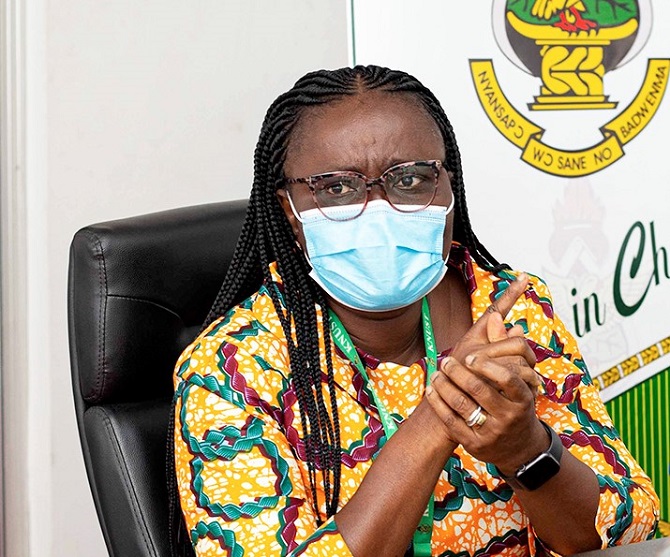
Mr. Samuel Annum led the first session, titled "General Overview of Intellectual Property for Researchers." Participants were introduced to the many types of Intellectual Property Rights (IPR); what is protected, the basic principle of IP, IP stakeholders, and the Ghana IP System. He outlined the benefits of IPRs. Participants were guided through a practical part on how to perform a patent search in order to access the millions of patent documents in a patent database to facilitate research and avoid reinventing the wheel. Mr. Annum urged researchers to have all members of their study team sign a non-disclosure agreement before beginning any research to avoid the leaking of their concept to a third party.
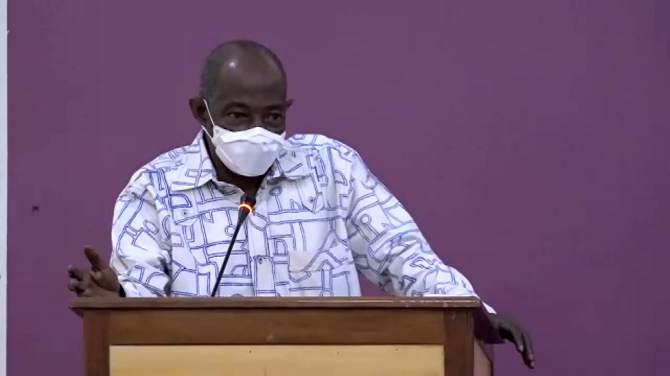
Dr. Olugbenga Olatunji who joined through ZOOM guided participants through the patent toolkits for academic research. He urged researchers to follow the best practices for academic invention, such as keeping correct records, adhering to contractual conditions, and quickly submitting patentable ideas to the intellectual property unit. Dr. Olatunji cautioned researchers to avoid premature public disclosure of their research prior to filing for a patent application, He cited publications, conference presentation, theses or dissertations at seminars/workshops, demonstrations and exhibitions among others as some of the premature public disclosure outlets.

Mrs. Adu Boahen emphasized the guiding principles mentioned in the KNUST IP Policy, which includes among others IP ownership, disclosure, evaluation, commercialization, and royalty distribution. She encouraged participants to make the IP Policy their companion and to use the university's IP support system to enhance the lives of the community through technology transfer.
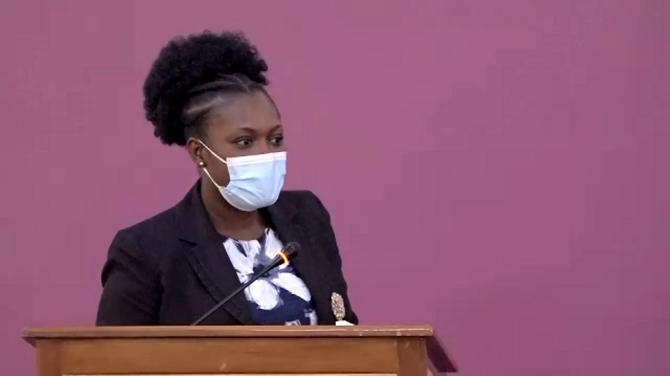
In his closing remarks, Professor Robert Clement Abaidoo, Director of the Office of Grants and Research (OGR), stated that intellectual property systems for KNUST were crucial in promoting research discoveries and innovations. He advised participants to learn about intellectual property regardless of their discipline, in order to get the most out of their research.
